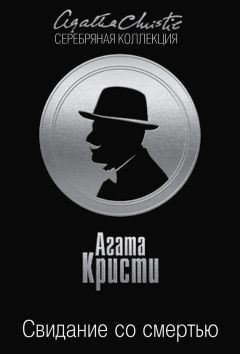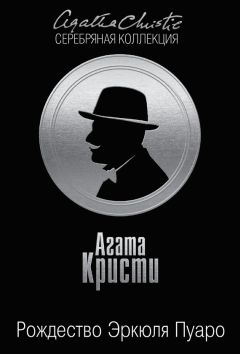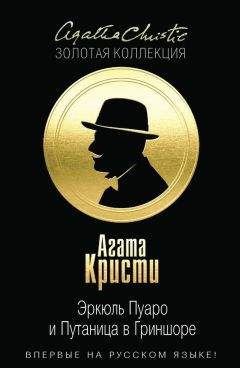Arthur Conan Doyle - Английский язык с Шерлоком Холмсом. Собака Баскервилей
"This explanation was borne out by the post-mortem examination (это объяснение подтвердилось /последующим/ вскрытием; to bear out — подтверждать), which showed long-standing organic disease (которое показало застарелый порок сердца; organic disease — любое заболевание, при котором происходят физические изменения в структуре органа), and the coroner's jury returned a verdict in accordance with the medical evidence (и коллегия присяжных при коронере вынесла вердикт в соответствии с медицинским заключением; to return — возвращать/ся/; официально заявлять; coroner — коронер, следователь по убийствам). It is well that this is so (хорошо, что это так), for it is obviously of the utmost importance (поскольку крайне важно; obviously — явно, очевидно) that Sir Charles's heir should settle at the Hall (чтобы наследник сэра Чарльза поселился в /Баскервиль/-холле) and continue the good work which has been so sadly interrupted (и продолжал добрые начинания, которые были прерваны столь прискорбно). Had the prosaic finding of the coroner not finally put an end to the romantic stories (не положи прозаические заключения следователя конец фантастическим выдумкам; finally — в конце концов; romantic — романтический; фантастический; story — рассказ; сплетни, россказни) which have been whispered in connection with the affair (которые передавались из уст в уста в связи с этим делом; to whisper — шептать) it might have been difficult to find a tenant for Baskerville Hall (могли бы /возникнуть/ трудности с поиском нового хозяина для Баскервиль-холла). It is understood that the next-of-kin is Mr. Henry Baskerville (предполагается, что ближайшим родственником является мистер Генри Баскервиль; to understand — понимать; предполагать), if he be still alive (если он «все еще» жив), the son of Sir Charles Baskerville's younger brother (сын младшего брата сэра Чарльза Баскервиля). The young man when last heard of was in America (молодой человек, когда о нем слышали в последний раз, находился в Америке), and inquiries are being instituted (и /сейчас туда/ посылаются запросы; inquiry — запрос, наведение справок; to institute — устанавливать) with a view to informing him of his good fortune (с целью уведомить его о /получении/ большого наследства)."
disease [dɪˈzi:z], affair [ǝˈfɛǝ], fortune [ˈfɔ:tʃ(ǝ)n]
"This explanation was borne out by the post-mortem examination, which showed long-standing organic disease, and the coroner's jury returned a verdict in accordance with the medical evidence. It is well that this is so, for it is obviously of the utmost importance that Sir Charles's heir should settle at the Hall and continue the good work which has been so sadly interrupted. Had the prosaic finding of the coroner not finally put an end to the romantic stories which have been whispered in connection with the affair it might have been difficult to find a tenant for Baskerville Hall. It is understood that the next-of-kin is Mr. Henry Baskerville, if he be still alive, the son of Sir Charles Baskerville's younger brother. The young man when last heard of was in America, and inquiries are being instituted with a view to informing him of his good fortune."
Dr. Mortimer refolded his paper and replaced it in his pocket (доктор Мортимер сложил газету и положил ее в карман; to replace — заменять; возвращать /на место/).
"Those are the public facts, Mr. Holmes (таковы /известные/ общественности факты, мистер Холмс), in connection with the death of Sir Charles Baskerville (в связи со смертью сэра Чарльза Баскервиля)."
"I must thank you (я должен поблагодарить вас)," said Sherlock Holmes, "for calling my attention to a case (за то, что обратили мое внимание на дело) which certainly presents some features of interest (которое, несомненно, представляет определенный интерес; feature — особенность; деталь). I had observed some newspaper comment at the time (в то время я обращал внимание на некоторые газетные комментарии), but I was exceedingly preoccupied by that little affair of the Vatican cameos (но я был сильно поглощен тем пустяковым делом с ватиканскими камеями), and in my anxiety to oblige the Pope (и в своем страстном желании угодить Папе /Римскому/) I lost touch with several interesting English cases (пропустил несколько интересных дел в Англии; to lose touch with — потерять связь/контакт). This article, you say, contains all the public facts (в этой статье, вы сказали, изложены все официальные факты; to contain — содержать в себе)?"
"It does (точно так)."
"Then let me have the private ones (тогда позвольте мне узнать: «получить» неофициальные; to have — иметь; получать)." He leaned back, put his finger-tips together (он откинулся назад, соединил кончики пальцев), and assumed his most impassive and judicial expression (и принял самый невозмутимый и беспристрастный вид; expression — выражение /лица, глаз и т. п./).
death [dǝƟ], cameo [ˈkæmɪǝu], already [ɔ:lˈredɪ]
Dr. Mortimer refolded his paper and replaced it in his pocket.
"Those are the public facts, Mr. Holmes, in connection with the death of Sir Charles Baskerville."
"I must thank you," said Sherlock Holmes, "for calling my attention to a case which certainly presents some features of interest. I had observed some newspaper comment at the time, but I was exceedingly preoccupied by that little affair of the Vatican cameos, and in my anxiety to oblige the Pope I lost touch with several interesting English cases. This article, you say, contains all the public facts?"
"It does."
"Then let me have the private ones." He leaned back, put his finger-tips together, and assumed his most impassive and judicial expression.
"In doing so," said Dr. Mortimer (поступая так, — сказал доктор Мортимер), who had begun to show signs of some strong emotion (который начал подавать: «показывать» признаки сильного волнения), "I am telling that which I have not confided to anyone (я расскажу то, о чем не говорил никому; to confide to — поверять; сообщать по секрету). My motive for withholding it from the coroner's inquiry is (причина, побудившая меня скрыть это на допросе у следователя) that a man of science shrinks from placing himself in the public position (/та, что/ человек науки боится поставить себя в такую позицию /перед/ обществом; to shrink from — избегать; опасаться) of seeming to indorse a popular superstition (/когда/ покажется, что он поддерживает широко распространенные суеверия). I had the further motive (еще одна моя причина /заключается в том/; further — дальнейший, добавочный) that Baskerville Hall, as the paper says (что Баскервиль-холл, как сказано в газете), would certainly remain untenanted (наверняка остался бы бесхозным/без хозяина; tenant — владелец /преим. недвижимости/; наниматель, арендатор) if anything were done to increase its already rather grim reputation (если бы было сделано что-то /еще/, что усилило = усугубило бы его и без того мрачную репутацию; already — уже; rather — довольно, весьма). For both these reasons (по этим двум причинам) I thought that I was justified (я подумал, что будет оправданным с моей /стороны/; to think; to justify — оправдывать) in telling rather less than I knew (рассказать немного меньше, чем я знал), since no practical good could result from it (поскольку никакой практической пользы из этого бы не вышло; good — благо, добро; польза; to result from — проистекать /из чего-либо/, происходить в результате /чего-либо/), but with you there is no reason (но с вами не вижу: «нет» причин) why I should not be perfectly frank (почему бы мне не быть полностью откровенным).
emotion [ɪˈmǝuʃ(ǝ)n], inquiry [ɪnˈkwaɪǝrɪ], perfectly [ˈpǝ:fɪktlɪ]
"In doing so," said Dr. Mortimer, who had begun to show signs of some strong emotion, "I am telling that which I have not confided to anyone. My motive for withholding it from the coroner's inquiry is that a man of science shrinks from placing himself in the public position of seeming to indorse a popular superstition. I had the further motive that Baskerville Hall, as the paper says, would certainly remain untenanted if anything were done to increase its already rather grim reputation. For both these reasons I thought that I was justified in telling rather less than I knew, since no practical good could result from it, but with you there is no reason why I should not be perfectly frank.
"The moor is very sparsely inhabited (торфяные болота очень редко населены), and those who live near each other (и тем, кто живет рядом друг с другом = по соседству) are thrown very much together (волей-неволей приходится много общаться друг с другом; to be thrown together — познакомиться случайно, без особого на то желания). For this reason I saw a good deal of Sir Charles Baskerville (по этой причине я часто виделся с сэром Чарльзом Баскервилем). With the exception of Mr. Frankland, of Lafter Hall (за исключением мистера Фрэнклэнда из Лэфтер-холла), and Mr. Stapleton, the naturalist (и мистера Стэплтона, натуралиста), there are no other men of education within many miles (там нет = больше не встретишь образованных людей на много миль). Sir Charles was a retiring man (сэр Чарльз был человеком, /любящим/ уединение; to retire — уходить в отставку; уединяться), but the chance of his illness brought us together (но случай с его болезнью свел нас вместе = его болезнь сблизила нас), and a community of interests in science kept us so (а общность интересов в науке поддерживала наши /отношения/). He had brought back much scientific information from South Africa (из Южной Африки он привез много научных сведений = материалов), and many a charming evening we have spent together (и много приятных вечеров мы провели вместе; to spend — тратить; проводить /время/) discussing the comparative anatomy of the Bushman and the Hottentot (обсуждая сравнительную анатомию бушменов и готтентотов[1]).
"Within the last few months (на протяжении последних «нескольких» месяцев) it became increasingly plain to me (мне все больше становилось ясным; to increase — возрастать) that Sir Charles's nervous system was strained to breaking point (что нервная система сэра Чарльза напряжена до предела; breaking point — критическое состояние). He had taken this legend which I have read you exceedingly to heart — so much (он настолько принимал близко к сердцу легенду, которую я вам прочел; exceedingly — весьма, сильно) so that, although he would walk in his own grounds (что, хотя он обычно прогуливался только в своем парке; grounds — сад, парк при доме), nothing would induce him (ничто бы не заставило его; to induce — побуждать; склонять) to go out upon the moor at night (выйти ночью на болота). Incredible as it may appear to you, Mr. Holmes (невероятно, как это может вам показаться, мистер Холмс), he was honestly convinced (/но/ он был искренне убежден) that a dreadful fate overhung his family (что страшное проклятие висело над его семьей; fate — судьба; to overhang — выступать над чем-либо, нависать; выдаваться, свешиваться; нависать, угрожать, грозить /чем-либо/), and certainly the records which he was able to give of his ancestors were not encouraging (и, конечно, примеры, которые он мог привести /из жизни/ своих предков, не ободряли: «не были ободряющими»; record — запись; исторический документ). The idea of some ghastly presence (мысль о чьем-то жутком присутствии) constantly haunted him (постоянно преследовала его), and on more than one occasion he has asked me (и частенько он спрашивал меня; on more than one — не раз; не единожды; occasion — возможность; случай, событие) whether I had on my medical journeys at night ever seen (не видал ли я когда-нибудь ночью по пути /к больному/; journey — путешествие; путь, маршрут) any strange creature or heard the baying of a hound (какого-нибудь странного существа и не слышал ли лая собаки). The latter question he put to me several times (последний вопрос он задавал мне несколько раз; to put — класть; ставить), and always with a voice which vibrated with excitement (и всегда голосом, дрожащим от волнения).




